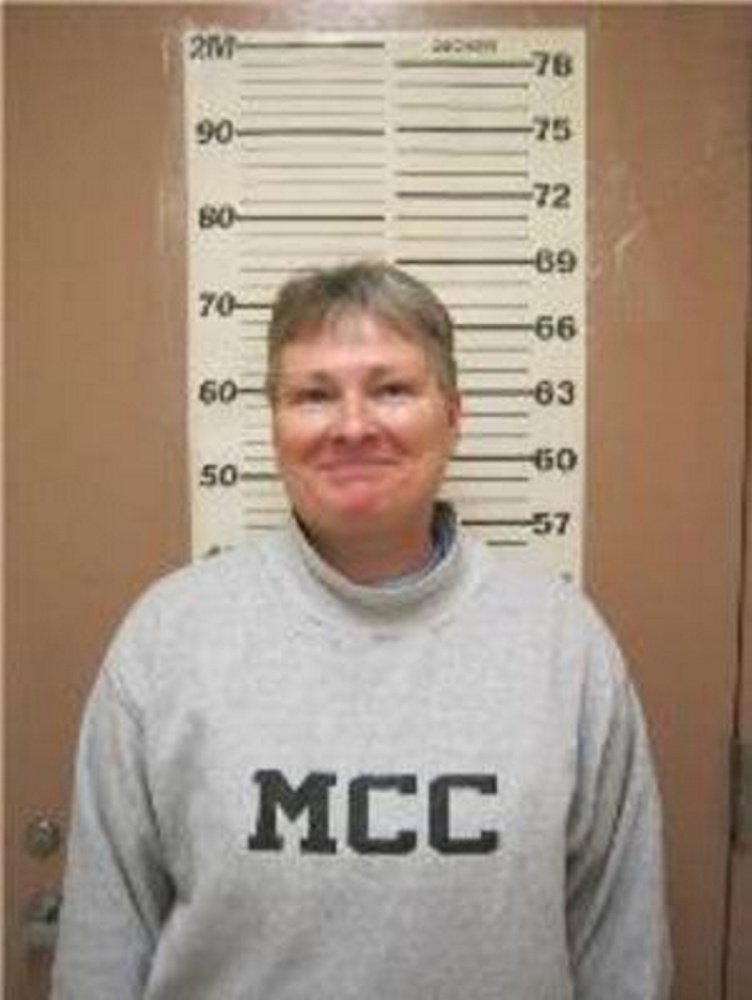Sally Ann Schofield, convicted of reckless or criminally negligent manslaughter in the suffocation death of 5-year-old Logan Marr, is out of prison this week for the first time in about 15 years.
Logan Marr’s mother, Christy Darling, who is undergoing treatment for a form of lung cancer that has metastasized in her right leg, said Wednesday she is upset about Schofield being freed.
“I’m really kind of lost for words right now,” Darling said from her Durham home, where she was recovering from having a port put in so she could receive chemotherapy treatment. “She shouldn’t be out of prison. I guess we should be thankful we don’t have the death penalty.”
She was notified by the Maine attorney general’s office, which prosecuted the case, that Schofield would be released Tuesday as previously scheduled. Schofield, a former state child caseworker, is living in Thorndike. A woman at that home who answered the phone Wednesday said Schofield was “not available” but took a message for her.
For Darling, Schofield’s release from prison stirs painful emotions.
“I just want Sally Schofield out of my life forever,” Darling said. “She’s ruined my children’s lives and mine. She took an innocent child from this world for no reason.”
Darling said she keeps her daughter’s ashes with her in her bedroom.
Darling added that Logan’s younger sister, Bailey, now 18 years old, told a television station Tuesday about how “she misses out on all the big sister stuff.”
“Yes, she does have a half brother, but it’s not the same,” Darling said. “You can’t argue over clothes. It’s sad.”
Logan and Bailey had been taken away from Darling — then known as Christy M. Baker — and placed at a series of foster homes before being moved to Schofield’s home in Chelsea. At the time, Schofield was a supervisor in the state Department of Health and Human Services, and the placement violated state rules.
Logan was found unresponsive Jan. 31, 2001, in the unfinished basement there.
In 2002, Schofield was convicted of manslaughter in Logan’s death by wrapping the hysterical-acting child in more than 42 feet of duct tape, some of it covering her mouth. The girl was bound to a highchair and left alone in the basement.
After Logan’s death, Bailey was returned to her mother.
On Wednesday, Darling said she’s dealing with the effects of the medical procedure for cancer treatment. “It’s painful; there’s no doubt about that,” she said. “They told me in another two or three days I should start to feel better.”
Schofield, 55, and formerly of Chelsea, will remain on probation for the next four years. If she violates conditions of that probation, Schofield could be sent back to prison for up to three years, the amount of the 20-year sentence that was suspended.
Along with standard conditions of no new criminal conduct and others prohibiting use and possession of alcohol and illegal drugs, her conditions include a ban on direct or indirect contact with children under 12 except her own and relatives’ children with supervision.
Within the first 48 hours of Schofield’s release from prison, she was required to report to her probation officer. She must obtain that officer’s permission before changing her address or getting a job and have written permission before leaving the state.
While in prison, she had sought to do some of the 500 hours of public service work that was ordered to be performed within 24 months of probation, but she was told to deal with her probation officer about that.
Letters about that dated from 2013 are the most recent items contained in Schofield’s file at the Capital Judicial Center in Augusta, a file that is almost 3 inches thick with documents dating from early 2001.
Attorney Amanda Doherty, who was representing Schofield only for the purpose of amending probation, filed a motion seeking to amend probation conditions. Doherty wrote that Schofield was concerned about violating probation if she had incidental contact with children under 12, even though that’s not usually considered a violation. Schofield wanted to follow “her probation conditions perfectly,” stated the motion, which was denied.
In a nonjury trial that took place in June 2002 in Bath, Schofield was acquitted of depraved indifference murder but convicted of reckless or criminally negligent manslaughter.
To illustrate the crime for then-Justice Thomas Delahanty at the trial, William Stokes, chief of the criminal division in the attorney general’s office, took more than 42 feet of duct tape and wound it around and around a life-size doll in a child’s highchair just like the one Schofield placed Logan in for a time-out as punishment for what Schofield said was misbehavior.
Investigators found that length of duct tape — some of it with evidence of Logan’s saliva and small hairs from the skin between her mouth and nose — near the tipped-over highchair on the basement floor.
In sentencing Schofield a second time — the initial sentence was overturned by the Maine Supreme Judicial Court — Delahanty said, “Here the asphyxiation with a full restraint and gag on her mouth and a partial occlusion of her nostrils … could only mean death was slow and agonizing with substantial conscious suffering, in some ways it can be equated to torture. Even if Miss (sic) Schofield found it necessary to restrain Logan, why did she have to encase her head in duct tape, close the door, turn the radio up, or at least check on her breathing before leaving her alone? The defendant, as noted in her personnel records, had to do it her way.”
That quote was part of the opinion delivered by the same court in 2006 in Augusta when it upheld the second sentence.
The case led to changes in the state’s foster care system in which the state Department of Health and Human Services emphasized placing children in kinship care rather than in foster homes.
Betty Adams — 621-5631
badams@centralmaine.com
Twitter: @betadams
Send questions/comments to the editors.





